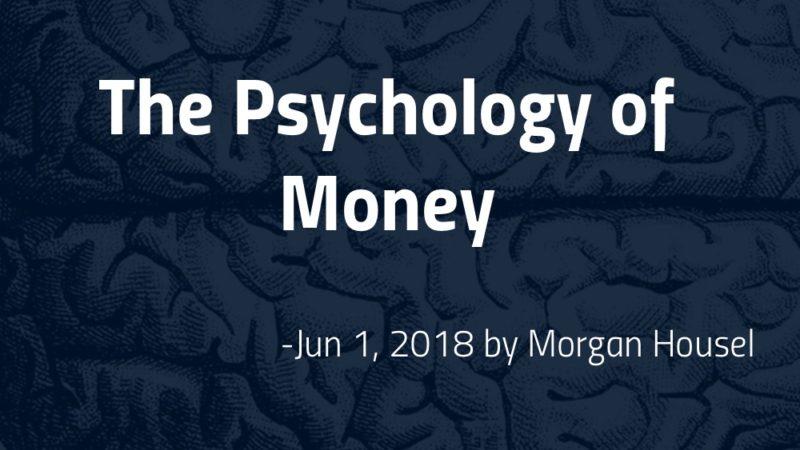In his book The Psychology of Money, Morgan Housel explains why “Don’t Do Anything” are the most powerful works in finance. Here’s an excerpt from the book:
If your sink breaks, you grab a wrench and fix it. If your arm breaks, you put it in a cast.
What do you do when your financial plan breaks?
The first question — and this goes for personal finance, business finance, and investing plans — is how do you know when it’s broken?

A broken sink is obvious. But a broken investment plan is open to interpretation. Maybe it’s just temporarily out of favor? Maybe you’re experiencing normal volatility? Maybe you had a bunch of one-off expenses this quarter but your savings rate is still adequate? It’s hard to know.
When it’s hard to distinguish broken from temporarily out of favor, the tendency is to default to the former, and spring into action. You start fiddling with the knobs to find a fix. This seems like the responsible thing to do, because when virtually everything else in your life is broken, the correct action is to fix it.
There are times when money plans need to be fixed. Oh, are there ever. But there is also no such thing as a long-term money plan that isn’t susceptible to volatility. Occasional upheaval is usually part of a standard plan.
When volatility is guaranteed and normal, but is often treated as something that needs to be fixed, people take actions that ultimately just interrupts the execution of a good plan. “Don’t do anything,” are the most powerful words in finance. But they are both hard for individuals to accept and hard for professionals to charge a fee for. So, we fiddle. Far too much.
For all the latest news and podcasts, join our free newsletter here.
FREE Stock Screener
Don’t forget to check out our FREE Large Cap 1000 – Stock Screener, here at The Acquirer’s Multiple:









